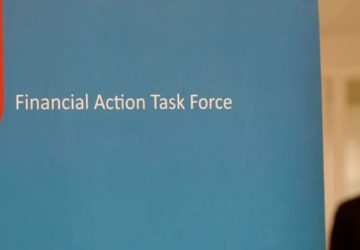Listen to the article
With porous land borders and a cash-based economy steadily growing, Lebanon undoubtedly deserves to be blacklisted by the FATF. But will it be?
The Financial Action Task Force (FATF) will hold its last meeting for its annual exercise in June, which starts in July each year and ends in June of the following year.
Lebanon is awaiting its verdict, knowing that its cash economy has increased from 26.2% of the GDP in 2021 to 45.7% in 2022 and to over 55% in 2023, with the upward trend continuing in 2024.
In Lebanon’s case, the World Bank has defined the cash economy as the mass of dollars in circulation, reflecting mainly legal transactions in an almost dollarized economy.
Political Reasons
Many observers are convinced that Lebanon will not be placed on the gray list or black list. The gray list is for countries under enhanced monitoring, “presenting strategic deficiencies in their procedures to combat money laundering, terrorism, and proliferation financing.” The reasons would be “geopolitical” rather than “financial.”
In the same context, the FATF would turn a blind eye to avoid a fight against alternative payment systems that would further harm the global economy.
Life Goes On
Lebanon’s economy will continue to operate, but not without some difficulties, whether the country is listed as non-cooperative with the FATF or not. Dubai is an example. The emirate was placed on the FATF gray list in 2022 and was removed in 2024.
That said, the cash economy is a major obstacle to economic recovery in Lebanon and has negative repercussions on the implementation of monetary and budgetary policies.
Banks
This informal economy has gradually replaced the Lebanese banking sector, which is searching for its role while putting individuals in a confusing situation as they have difficulty proving the origin of their funds when they need to use them abroad.
In its 2023 report, the World Bank had already noted that most financial transactions are settled in cash, and the credit lines offered by the Lebanese banking sector are fully secured by cash collateral.
Timid Measures Taken by the BDL
The Central Bank of Lebanon (BDL) has reacted timidly to curb the cash economy, which is gaining ground and represents a “consequence” of the multidimensional crisis that began in October 2019.
For now, the BDL has contented itself with encouraging financial inclusion. However, Circular 165, issued a few months ago, is still considered a significant step in the right direction.
This circular focused on creating a clearinghouse for dollar and fresh pound checks and fund transfers at the central bank. As a result, the use of fresh transfers and checks has begun to increase, and fresh checks have become a safe and alternative means of payment to cash.
Furthermore, the BDL is working with the Ministry of Finance on a project that would allow taxpayers to use electronic payment cards to pay their taxes and duties at ministry cash desks across the country once POS machines are installed.
The interim governor of the BDL, Wassim Mansouri, promised a few weeks ago to unveil a plan for deposit recovery, which could provide a solution to the multidimensional crisis by addressing the real issue of solvency rather than losses. But for that to happen, political leaders would first need to get to work and accept responsibility for their mistakes and public policies that have sunk the country.



